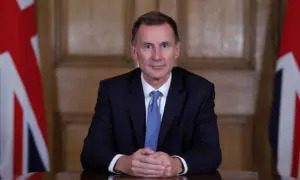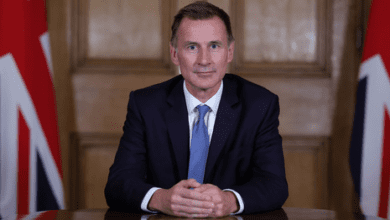Industry reacts: Autumn Statement ‘light on growth’
Jeremy Hunt unveiled his Autumn budget on November 17, introducing a raft of measures aimed at ‘stabilising’ the economy and reducing inflation

While the accountancy sector has welcomed the “stability” encouraged by the latest Autumn budget, it has warned the UK now faces a “record” tax burden, whilst noting that tax incentives for growth were “light on the ground”.
Jeremy Hunt unveiled his Autumn budget on November 17, introducing a raft of measures aimed at “stabilising” the economy and reducing inflation.
Tim Sarson, head of Tax Policy at KPMG in the UK, noted that while the statement gave “stability and confidence to business and the City”, it was not a “big reforming budget”.
He said: “From a business tax perspective, the majority of announcements were made in an effort to create stability through springing no major surprises, although the changes to the energy profits levy do risk making it harder for the UK to attract the investment it needs in the sector.
“One key area to emphasise is the heavy lifting the current high level of inflation is doing in delivering tax revenues. The combination of frozen tax thresholds and inflation-induced wage increases means more and more people are getting dragged into higher tax rates. This was not a big reforming budget. There was very little to indicate what the future might hold from a tax policy perspective.”
Meanwhile, Jon Richardson, head of tax policy, PwC, said the chancellor “delivered on the promise that there would be few rabbits out of the hat on tax for this statement”. While Richardson noted there was “some positive news” on business rates, he warned the “net impact is the UK is now facing a record tax burden”.
He added: “Apart from the additional tax there is a hidden cost to the announcements which is the additional tax compliance burden – as tax free allowances reduce, more income and gains are brought into the tax net which will need to be reported on tax returns for the first time. The chancellor talked a lot about growth but with the corporation tax rate going up to 25%, no replacement to the super deduction and a net reduction in R&D tax relief, the UK’s tax competitiveness is significantly deteriorating.”
Amanda Tickel, head of tax and trade policy at Deloitte, also warned of limited growth measures, despite expecting to see “generous incentives” to push for further growth.
She said: “Although one of the priorities today was growth, there were few growth measures announced, even for R&D, which was an area where we expected to see generous incentives. The enhanced tax deduction for SMEs will actually be reduced. There was better news for larger companies who will see the value of R&D Expenditure Credit (RDEC) increasing from 13% to 20%. Overall, though, the value of R&D reliefs are being reduced by £1.3bn per year by 2027/28.”
She added that the UK was already facing its highest tax burden since WW2 and the extra £24bn announced in the statement “increases that even further”.
Karen Campbell-Williams, head of Tax, Grant Thornton UK LLP, concluded: “The objectives of today’s Autumn Statement were clear – restore fiscal stability, instil market confidence and get inflation [at its highest rate in 41 years] under control. With a £55bn black hole to plug, there was little to cheer for businesses and individuals today, as the Chancellor delivered a statement in complete contrast to that of his predecessor.
“This was a Budget where the stated priorities were stability, public services and growth – whilst there was much to support the first two of these, tax incentives for growth were light on the ground.”








